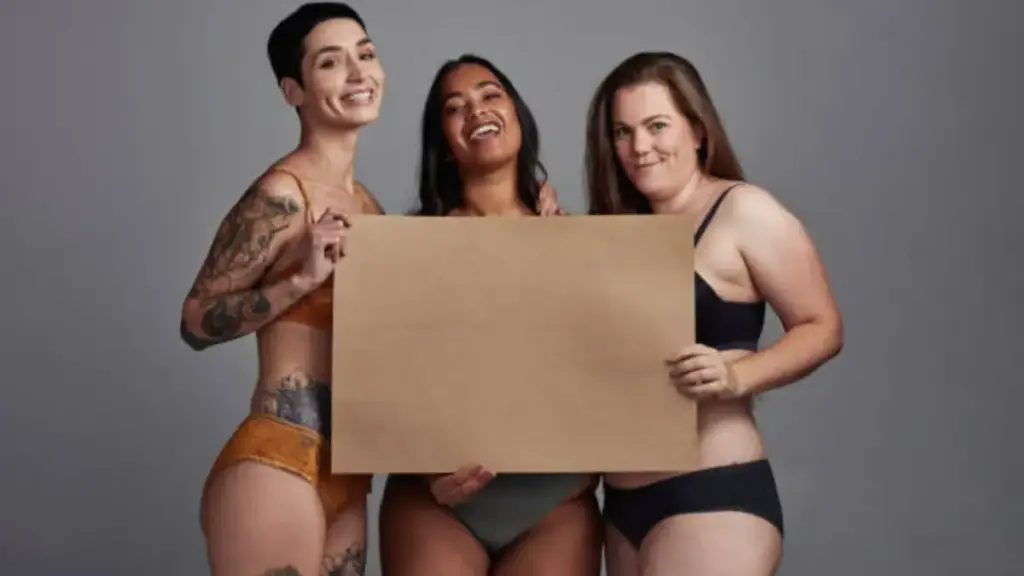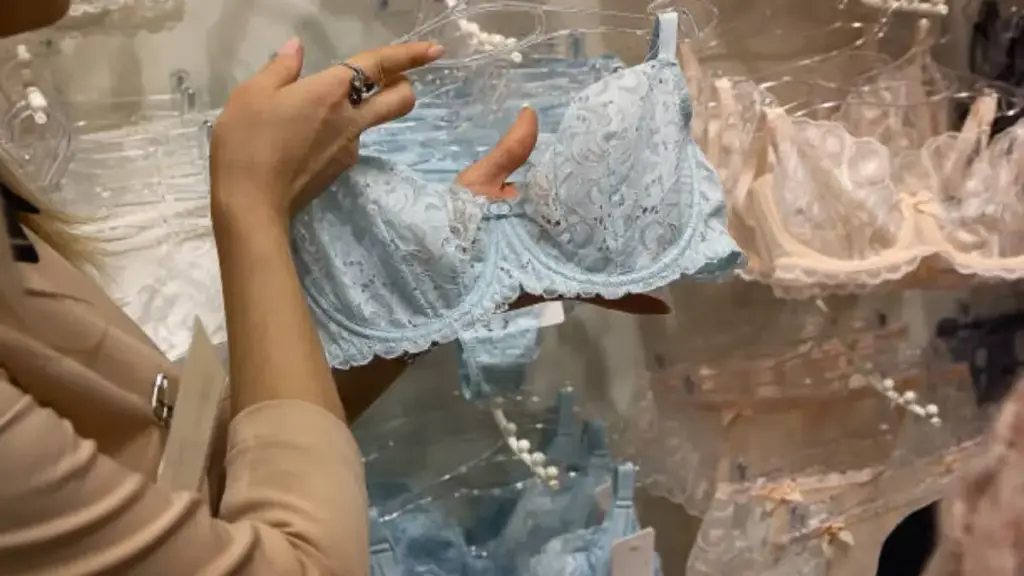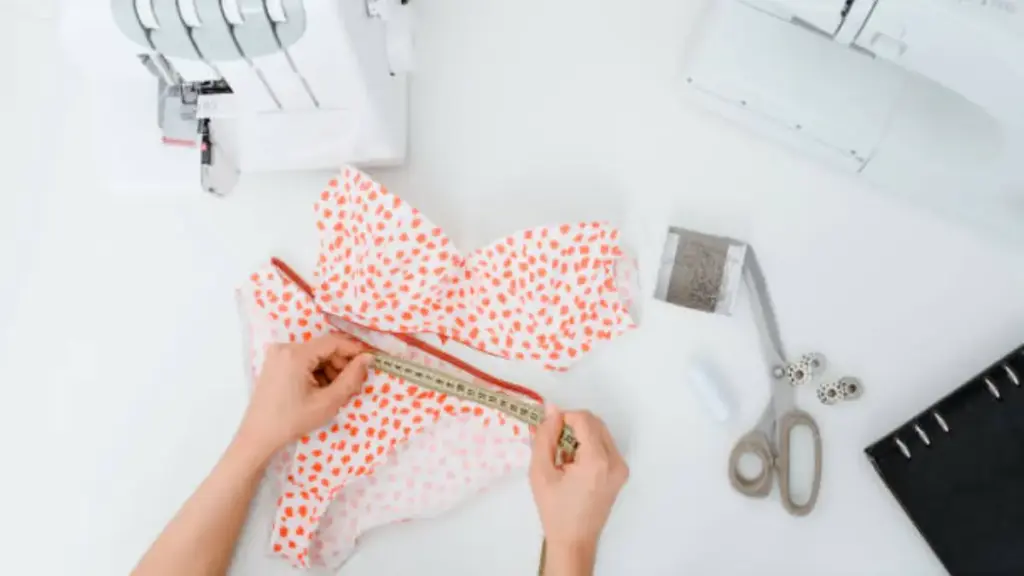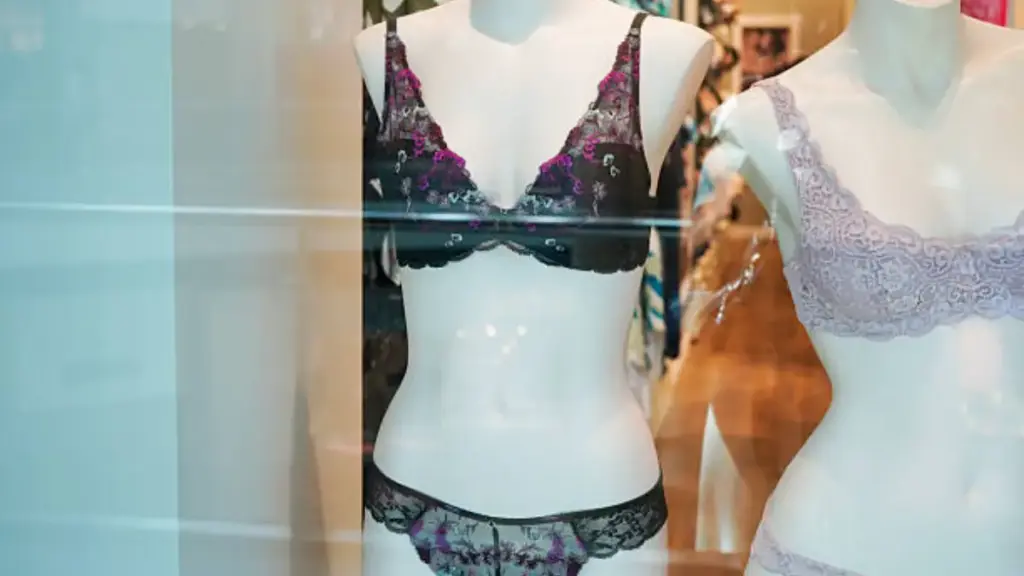Die Gründung einer Dessous-Marke kann ein aufregendes und lohnendes Unterfangen sein, Dies ist jedoch mit erheblichen Kosten verbunden, die sorgfältig abgewogen werden müssen. Egal, ob Sie Ihre erste Kollektion auf den Markt bringen oder ein vollwertiges Unternehmen planen, Das Verständnis der Finanzlandschaft ist der Schlüssel zur Bewältigung der Komplexität der Branche.
In diesem Leitfaden, Wir schlüsseln die wichtigsten Kosten auf, die mit der Gründung einer Dessous-Marke verbunden sind – vom Design über die Herstellung bis zum Marketing – und helfen Ihnen, Ihr Budget effektiv zu planen.

Gesamtkostenaufschlüsselung für die Gründung einer Dessous-Marke
Die Gründung einer Dessous-Marke ist keine kleine Investition. Es gibt mehrere Schlüssel Faktoren, die Sie berücksichtigen müssen vor der Einführung Ihrer Marke, um den langfristigen Erfolg sicherzustellen. Die Gesamtkosten für die Gründung eines neuen Dessous-Geschäfts können zwischen einigen Tausend Dollar und Zehntausenden Dollar liegen, Abhängig von der von Ihnen gewählten Skala.
| Startup-Skala | Kostenspanne | Spezifische Aktionen |
| Low-End-Startup | $5,000 – $10,000 | – Kleine erste Produktkollektion – Grundlegende Website-Entwicklung – Minimaler Marketingaufwand |
| Mittelklasse-Startup | $20,000 – $50,000 | – Größeres anfängliches Produktsortiment – Professionelle Website-Entwicklung – Influencer-Partnerschaften – Detailliertere Marketingkampagnen |
| High-End-Startup | $100,000+ | – Hochwertige Produktkollektion – Professionelle Fotografie und Branding – Internationaler Vertrieb – Umfangreiche Marketingkampagnen – Größere Produktbestellungen und professionelle Dienstleistungen (Z.B., Branding, Öffentlichkeitsarbeit, usw.) |
Wie viel kostet es, Ihre erste Dessous-Kollektion zu entwerfen??

Das Entwerfen Ihrer ersten Dessous-Kollektion ist sowohl ein aufregender als auch herausfordernder Schritt. Es erfordert nicht nur Kreativität, sondern auch eine sorgfältige Budgetierung, um Ihre Ideen zum Leben zu erwecken. Folgendes müssen Sie bei der Budgetierung für die Entwurfsphase berücksichtigen.
Design- und Entwicklungskosten
- Wenn Sie einen professionellen Designer engagieren, Erwarten Sie, von überall aus zu bezahlen $1,000 Zu $5,000 für eine kleine Sammlung von Stilen (3-6 Stücke).
- Freiberufliche Designer berechnen oft stunden- oder projektweise, während Designagenturen möglicherweise höhere Gebühren für ihre Dienstleistungen verlangen.
- Einige Unternehmen arbeiten sogar mit Modellbauern und technischen Designern zusammen, um die Passform und Konstruktion jedes Stücks zu verfeinern, was noch eins hinzufügen könnte $500 Zu $2,000 pro Stil.
Stoffauswahl und Muster
- Die Stoffauswahl ist ein entscheidender Teil des Designprozesses, mit Kosten zwischen $2,000 Zu $5,000 für Stoffmuster und erste Mustermengen.
- Hochwertige Stoffe wie Seide oder Spitze können diese Kosten erhöhen, während einfache synthetische Stoffe erschwinglicher sein werden.
Prototyping und Anpassungen
Erwarten Sie, zu zahlen $100 Zu $500 pro Probe. Wenn Anpassungen erforderlich sind, Möglicherweise sind zusätzliche Proben erforderlich, steigende Kosten.
Direkte Zusammenarbeit mit der Fabrik
Einige Unternehmen entscheiden sich für eine direkte Zusammenarbeit mit Fabriken für maßgeschneiderte BHs Design, Reduzierung der Kosten, indem die Fabrik alles vom Design bis zur Stoffauswahl und Bemusterung übernimmt. Dieser Ansatz senkt in der Regel die Kosten, mit Mindestbestellmengen (Mindestbestellmenge) von 500 Zu 1,000 Einheiten und Preise reichen von $5 Zu $10 pro Stück. Der optimierte Prozess kann sparen 10-20% im Vergleich zur Zusammenarbeit mit mehreren Designspezialisten.
In Summe, Das Entwerfen Ihrer ersten Kollektion liegt normalerweise zwischen $5,000 Und $15,000. Die direkte Fabrikzusammenarbeit bietet eine kostengünstige Möglichkeit, Design und Produktion effizient zu verwalten. Wie können Sie sicherstellen, dass Sie mit einer vertrauenswürdigen Fabrik zusammenarbeiten?? Lassen Sie uns als nächstes darauf eingehen.
Herstellungskosten

Wenn es um die Herstellung von Dessous geht, Die Kosten werden von verschiedenen Faktoren beeinflusst, beispielsweise von der Wahl des Herstellers, die Art der Materialien, die Sie verwenden, und das Produktionsvolumen.
Auswahl eines Herstellers
Der richtige Fertigungspartner kann erhebliche Auswirkungen sowohl auf Ihre Produktqualität als auch auf Ihr Budget haben. Bei den Herstellern gibt es im Wesentlichen zwei Möglichkeiten: vor Ort und im Ausland.
- Lokale Hersteller
Inländische Hersteller haben aufgrund der Arbeits- und Betriebskosten tendenziell höhere Produktionskosten. Jedoch, Sie bieten Vorteile wie kürzere Bearbeitungszeiten, einfachere Kommunikation, und geringere Mindestbestellmengen (Mindestbestellmenge). Erwarten Sie, ungefähr zu zahlen $5 Zu $10 pro Stück für die lokale Produktion, obwohl einige High-End-Hersteller möglicherweise mehr verlangen.
- Ausländische Hersteller
Hersteller mit Sitz in Ländern wie China, Indien, oder Bangladesch bieten wettbewerbsfähigere Preise, können jedoch mit Herausforderungen wie Sprachbarrieren verbunden sein, längere Lieferzeiten, und mögliche Probleme bei der Qualitätskontrolle. Die Herstellung im Ausland kann so wenig wie möglich kosten $1 Zu $3 pro Stück, abhängig von der Komplexität des Designs und den verwendeten Materialien. Jedoch, Beachten Sie zusätzliche Kosten wie den Versand, Tarife, und Einfuhrzölle.
Produktionskosten
Mindestbestellmengen (Mindestbestellmenge): Bei der Zusammenarbeit mit Herstellern, Oft gibt es eine Mindestbestellmenge, Typischerweise reicht von 500 Zu 1,000 Einheiten pro Stil. Je höher die Mindestbestellmenge, desto niedriger sind die Kosten pro Einheit, Dies bedeutet jedoch, dass Sie im Voraus in den Lagerbestand investieren müssen. Großbestellungen senken im Allgemeinen die Produktionskosten pro Einheit, Sie erhöhen aber auch Ihren anfänglichen Cashflow-Bedarf.
Materialien: Die Materialkosten variieren stark. Einfache Kunststoffe könnten etwa kosten $1 Zu $3 pro Yard, während Premiumstoffe wie Seide reichen können $10 Zu $30 pro Yard.
Produktionszeit: Abhängig von der Komplexität Ihrer Designs, Die Produktionszeit kann zwischen einigen Wochen und einigen Monaten variieren. Typischerweise, Die Hersteller berechnen die Preise basierend auf der Anzahl der Produktionsstunden und der Anzahl der Einheiten in Ihrer Bestellung. Das kann reichen von $1,000 Zu $5,000 bei den Arbeitskosten, Abhängig vom Umfang Ihrer Bestellungen.
Anpassung Kosten
Wenn Sie ein personalisierteres Produkt anstreben, wie individuelle Drucke, Stickerei, oder Sonderverpackung, Diese Elemente erhöhen Ihre Kosten. Anpassungen können den Preis um erhöhen $1 Zu $5 pro Stück, und Verpackungsdesign könnte noch einen weiteren hinzufügen $1 Zu $3 pro Einheit. Allerdings können diese individuellen Details Ihr Gesamtbudget erhöhen, Sie sind oft für die Markendifferenzierung unerlässlich, vor allem auf dem überfüllten Dessous-Markt.
Bestandsverwaltung

Wussten Sie, dass die von Ihnen gewählte Lagerfläche eine Schlüsselrolle bei der Kostenkontrolle spielt?? Zum Beispiel, in den USA, Die Lagermiete variiert je nach Standort erheblich. In städtischen oder hafennahen Gebieten, Die Kosten könnten zwischen variieren $1 Zu $3 pro Quadratfuß, also ein $500 Die monatlichen Kosten belaufen sich in der Regel auf ca 200 Zu 500 Quadratfuß. In abgelegeneren Gebieten, Die Mieten könnten sinken $0.5 Zu $1 pro Quadratfuß, zulassen 500 Zu 1,000 Quadratmeter zum gleichen Preis. Dieser Raum kann überall aufbewahrt werden 500 Zu 1,000 Einheiten Unterwäsche, abhängig davon, wie das Inventar organisiert ist.
Der Standort des Lagers wirkt sich auch auf die Transportkosten aus. Wenn es näher an wichtigen Schifffahrtsrouten oder Ihrem Zielmarkt liegt, Die Versandkosten können niedriger sein. Auf der anderen Seite, Ein weiter entfernter Standort kann die Transportkosten erhöhen 10-20%, hinzufügen $1 Zu $3 pro Einheit. Sie sollten die Miete mit den Logistikkosten in Einklang bringen, um die Gesamteffizienz sicherzustellen.
Marketing und Branding
Markenidentität: Aufbau einer Markenidentität, inklusive Logo, Farbpalette, und Verpackungsdesign, kann dazwischen kosten $2,000 Und $5,000, abhängig von der Fachkenntnis der von Ihnen beauftragten Designer.
Website- und E-Commerce-Setup: Die Einrichtung einer professionellen Website und E-Commerce-Plattform kann von reichen $1,000 Zu $10,000, je nach Komplexität und Individualisierung. Viele Unternehmer entscheiden sich für Plattformen wie Shopify, die erschwinglich bieten, vorgefertigte Lösungen für den Start eines Online-Shops.
Digitales Marketing: Social-Media-Marketing, Influencer-Partnerschaften, und bezahlte Anzeigen sind unerlässlich, um Ihre Zielgruppe zu erreichen. Die Marketingkosten können zwischen variieren $1,000 Zu $10,000 pro Monat, je nach Maßstab und verwendeten Kanälen. Viele Marken konzentrieren sich auf Instagram und TikTok, wo die optische Attraktivität im Vordergrund steht, und Kooperationen mit Influencern können die Markenbekanntheit steigern.
Rechts- und Verwaltungskosten
Vergessen Sie nicht die rechtlichen und administrativen Kosten, die mit der Gründung einer Dessous-Marke verbunden sind.
Gewerbeanmeldung: Die Registrierung Ihres Unternehmens kostet in der Regel zwischen $50 Und $500, abhängig von Ihrem Standort und der Unternehmensstruktur (LLC, Gesellschaft, usw.).
Markenzeichen: Der Schutz Ihrer Marke mit einer Marke kann zwischen kosten $250 Und $2,000. Sie haben die Wahl, es selbst zu tun oder einen Anwalt zu beauftragen, der Sie bei der Bewältigung des Prozesses unterstützt.
Rechtskonformität und Versicherung: Sie müssen auch die laufenden Rechtskosten berücksichtigen, inklusive Versicherung, was kosten könnte $500 Zu $2,000 pro Jahr.
Laufende Kosten und Budgetierung für Wachstum

Wenn Ihre Dessous -Marke wächst, Es entstehen Ihnen mehrere laufende Kosten, die berücksichtigt werden müssen. Hier finden Sie eine kurze Aufschlüsselung dieser Ausgaben:
- Mitarbeitergehälter: $30,000 – $80,000 jährlich pro Vollzeitmitarbeiter (je nach Rolle).
- Marketing und Werbung: $2,000 – $10,000 pro Monat für digitales Marketing, Influencer, und Werbeaktionen.
- Kundensupport: $1,000 – $3,000 pro Monat für Kundendienst-Tools und -Personal.
- Wiederauffüllung des Lagerbestands: $10,000 – $50,000 pro Bestellung, abhängig vom Produktionsvolumen.
- Lager und Lagerung: $500 – $3,000 pro Monat, je nach Standort und Raum.
- Versand und Logistik: $1 – $5 pro Einheit für den Inlandsversand, $10 – $20 pro Einheit für internationale Sendungen.
- Software und Tools: $100 – $1,000 pro Monat für die Bestandsverwaltung, E-Commerce-Plattformen, und Marketinginstrumente.
- Recht und Compliance: $500 – $2,000 jährlich für Markenverlängerungen, Versicherung, und Anwaltskosten.
Abschluss
Die Gründung einer Dessous-Marke ist mit hohen Vorlaufkosten verbunden, aber mit sorgfältiger Planung, es ist absolut erreichbar. Vom Entwurf Ihrer ersten Kollektion bis zur Verwaltung der Herstellung und des laufenden Betriebs, Das Verständnis Ihrer finanziellen Verpflichtungen ist der Schlüssel zum Erfolg. Egal, ob Sie gerade erst klein anfangen oder eine größere Marke anstreben, Zu wissen, wo Sie Ihre Mittel anlegen, kann den entscheidenden Unterschied machen.
Während Sie vorankommen, Erwägen Sie eine Partnerschaft mit zuverlässigen Herstellern wie Xinke, bekannt für ihren Brauch Silikon -BHs die außergewöhnliche Qualität zu erschwinglichen Preisen bieten. Mit Fokus auf maßgeschneiderte Lösungen und konsequent Qualitätskontrolle, Xinke stellt sicher, dass Ihre Produkte Ihren Design- und Funktionsanforderungen entsprechen. Ihre Fähigkeiten können Ihrer Marke dabei helfen, eine solide Grundlage für den Erfolg zu schaffen.
Bereit, Ihre Traummarke in die Realität umzusetzen? Beginnen Sie mit der Planung, Bleiben Sie konzentriert, und wagen Sie noch heute den Sprung!